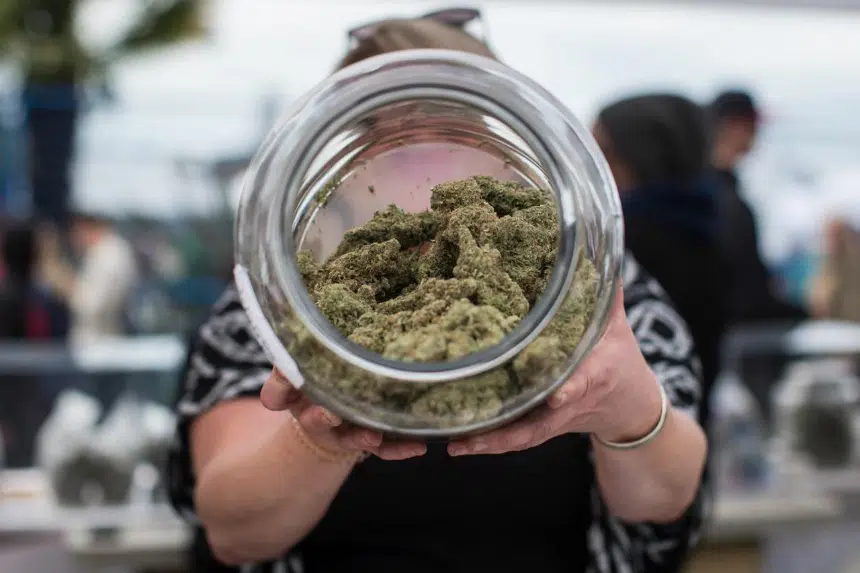An amendment to Saskatchewan’s cannabis control laws has granted Indigenous communities the powers to regulate their own cannabis retail stores.
Under the newly enacted change to provincial law, on-reserve cannabis retail stores are now exempt from the normal permit requirements under provincial cannabis laws, provided some sort of oversight framework is developed.
“I read this as an attempt by the Saskatchewan government to prod reserves that are hosting these stores to come up with some sort of oversight,” said Jason Childs, an associate professor of economics at the University of Regina who studies the cannabis industry.
He said the new regulations offer a way for retailers regulated by the Saskatchewan Liquor and Gaming Authority (SLGA) and those operating on reserves to co-exist in a “vaguely similar legal environment.”
Federal legalization and regulation of cannabis has assigned provinces authority over retail and distribution, Childs explained. That gives significant powers to the SLGA, he added, but a significant grey area exists when it comes to jurisdiction over on-reserve businesses.
“As soon as you get into reserves, jurisdiction becomes unclear,” Childs said.
While not a legal expert, Childs said his understanding of the issue is that reserves and businesses on them operate outside of provincial control.
He said “several” retailers have been operating on reserves for some time, without being effectively regulated by the SLGA.
“SLGA has been saying these stores shouldn’t exist, but it’s not obvious that they have the authority to shut them down because of the relationship between bands and the reserves and the province,” Childs said.
He added that raises the jurisdictional question about where reserves fit in the Canadian system — a complicated question on its own, because reserves don’t neatly fit into the municipal/provincial/federal structure of government.
Within their own jurisdiction, the SLGA has the power to fine or shut down a business if it isn’t operating properly. In a city like Regina or Saskatoon, that threat is valid, Childs said. A similar level of oversight is present for bars and liquor retailers, but those powers aren’t the same on First Nations reserves.
Whether or not on-reserve cannabis businesses should be subject to the SLGA’s oversight is “not obvious,” Childs said.
He explained the new amendment is acknowledging the lack of jurisdiction the province has over reserves, while conveying to Indigenous leadership that they need to come up with an oversight policy that will run somewhat parallel to the SLGA.
A band or several bands could choose to establish a regulatory framework that would outline basic requirements under current cannabis laws, such as only selling cannabis produced by federally licensed sellers, not selling cannabis to minors, keeping appropriate records, and preventing cannabis from ending up on the illicit market.
However, as on-reserve cannabis retail stores are not necessarily under the control of provincial rules in the first place and there is no accountability to ensure that oversight will be created, Childs said it leaves the area “completely wide open” and legally awkward, especially without mention of Indigenous groups in the federal act.
If an oversight framework is not established by Indigenous leadership, there is the possibility of some safety concerns around cannabis sold on-reserve and how it is sold, though Childs doesn’t see that happening. He said he also doesn’t see much penalty potential if retail stores on reserves choose not to abide by provincial rules.
“Who’s going to shut these stores down? Is it going to be the band? Is it going to be the federal government?” Childs asked. “If the band doesn’t want to shut the store down, what happens?”
Childs said the issue provides an interesting perspective on nation-to-nation relationships between Canadian, Saskatchewan and Indigenous governments.
But unless a band has a reason to make a change to how a cannabis retail operation is functioning on their land, Childs said he doesn’t expect many changes to happen.
“I don’t think we’re going to see the Saskatchewan government force this into play. I don’t see how they can,” he said. “SLGA rules are being argued to not apply on reserve, and the federal act makes no mention of reserves that I recall. These guys are sort of operating in a vacuum.”







